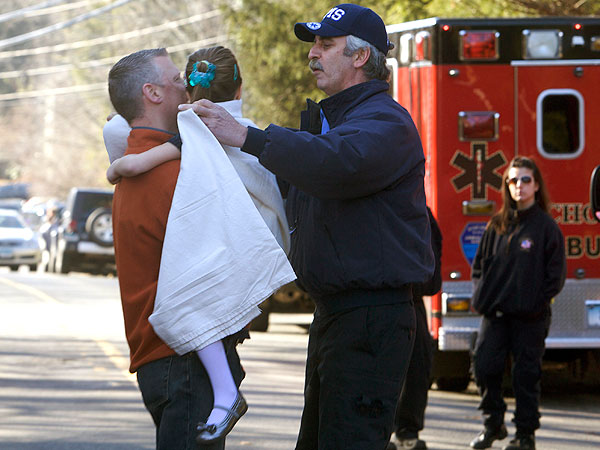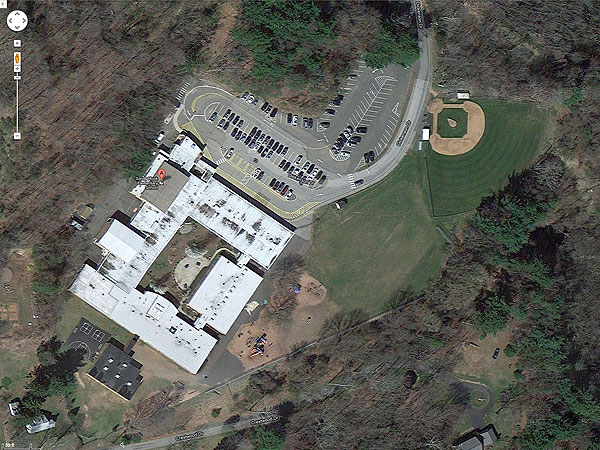
Tyler Hicks/The New York Times
A bakery in Aleppo. The price has shot up from 25 Syrian pounds, about 35 cents, for a bag of about eight flat, pitalike loaves to more than 200 pounds, nearly $3.
GAZIANTEP, Turkey — Jalal al-Khanji, the closest thing the Syrian city of Aleppo has to a mayor, hopes to organize elections there within two weeks, but he fears that residents with empty stomachs are in no mood for an experiment in democracy.
Since late November, bread has been scarce, with a lack of fuel and flour shutting most bakeries in Aleppo.
“We cannot hold elections while people are hungry; we have to solve that problem first,” he said in an interview in this southern Turkish city, where many leaders of Aleppo’s civil society have sought refuge. “People are angry, frustrated and depressed. They can understand how countries like France and Britain and the United States might hold back on the issue of weapons, but not on the issue of bread and diesel.”
The revolution that erupted across Syria in March 2011 only slowly engulfed Aleppo, Syria’s commercial capital. Long after major cities were convulsed by demonstrations, Aleppo’s residents still showed up in Gaziantep by the busload every weekend to scour the malls.
The armed struggle for the city began in earnest last July.
In August, the prominent doctors, engineers, pharmacists and businessmen sheltering here established the Aleppo Transitional Revolutionary Council, a kind of city government in exile for the liberated portions of the city. Mr. Khanji, 67, a civil engineer with a long history of opposing the Syrian government, serves as its president.
Dividing their time between Gaziantep and Aleppo, council members found the chaos convulsing their city worrisome. What if all the competing militias on the ground, even if nominally part of the loosely allied Free Syrian Army, continued to fight for the spoils even after the government’s forces were driven from the city?
They decided the remedy was an elected council of about 250 members who would run both the city and the province of Aleppo, roughly one representative for every 20,000 people in the liberated areas. The council would choose a smaller group to actually govern the city.
The idea is for the council to serve as a liaison between the military and the civilian populations. “If civilian life is not organized, if we cannot do anything, then the chaos will continue,” said a 29-year-old businessman who is also on the transitional council. Several members of the council declined to give their names because they still travel to government-controlled areas.
About 65 percent of the villages have already chosen their representatives, he said, but the humanitarian crisis in Aleppo forced a postponement of the choice of about 150 representatives from the city itself.
The transitional council is in the process of establishing a 500-member police force and runs a few courts, but members view the bread crisis as their first big test. “We represent a civil government to some extent, so if we cannot solve this problem there will be a lack of trust in such rule in the future,” said the businessman.
There is also competition. While about 70 percent to 80 percent of the Free Syrian Army commanders in the province have agreed to support the elected council, election organizers said, opponents include jihadi groups hostile to the very idea of democratic elections.
One such prominent group, Jibhat al-Nusra, which the United States sought to ostracize last week by labeling it a terrorist organization, has been distributing bread in and around Aleppo.
“The so-called terrorists are the ones who have been giving us bread and distributing it fairly,” said Tamam Hazem, a spokesman in Aleppo’s news media center, reached via Skype. “Free Syrian Army battalions have been trying to help, but they just don’t have the same kind of experience.”
Council members pleaded for outside help to counter the efforts of the jihadists. “They are offering bread to people to obtain their sympathy and respect,” said Mr. Khanji, the council’s president. “Prolonging the Syrian crisis will allow the extremist cells in Syria to grow and become more difficult to remove in the future.”











